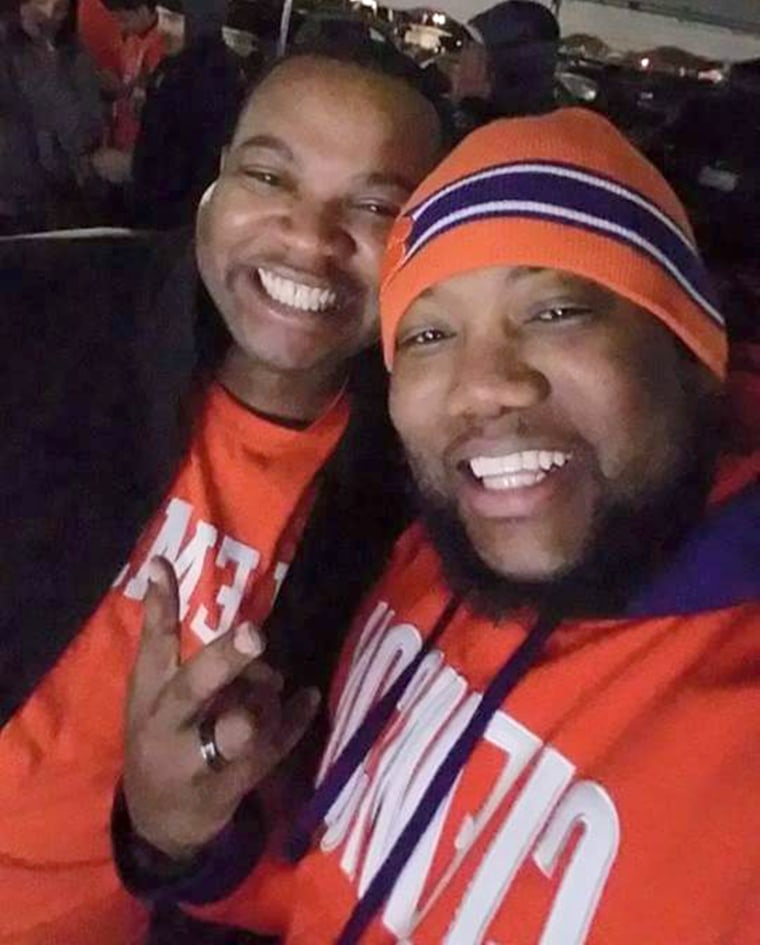After his cousin, 38, was diagnosed with colon cancer in November 2019, Al Thomas felt worried. He asked his doctor about his risk, but she assured him it was low because of his age, 38, and that his cousin, Will Ladson, wasn’t a first-degree relative. But colon cancer remained in the back of his mind. After a blood test showed he was anemic, Thomas took a home test that led to the early detection of his colon cancer.
“That came back showing microscopic traces of blood in my stool,” Thomas, 40, a therapist, told TODAY. “When you hear colon cancer again it kind of sends you in a tailspin … We had just gone through this. This was September 2020 and we had just deal with my cousin passing in August 2020.”
Early detection
Ladson was three months older than Thomas and the two were always close as children. As adults, they both lived in the same town, Lexington, South Carolina, and their two families enjoyed spending time together.
“He’s my best friend,” he said. “We grew up together like brothers.”
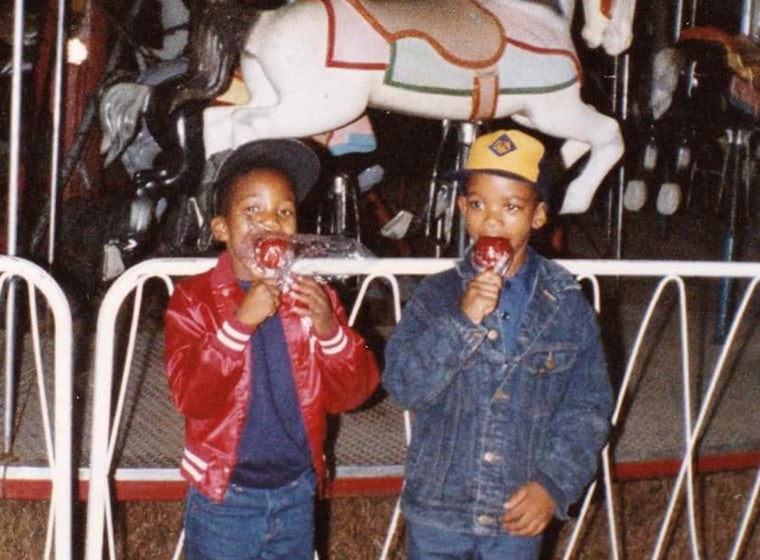
Ladson started experiencing gas and stomach cramps and visited doctors to understand why. They thought maybe he had Crohn’s disease or an infection.
“(He was) in and out of the ER and eventually one ER physician said, ‘Let’s see by doing a CT scan,’” Thomas recalled. “They found that there was a blockage.”
They tried to do a colonoscopy but couldn’t — the mass was too large. Ladson underwent emergency surgery to remove the tumor and was diagnosed with stage 3 colon cancer. Later when Thomas visited his primary care doctor for his physical and asked about being screened, his doctor encouraged him to wait. Then he became so busy helping Ladson and his family, that he forgot about it.
“He had to have a pretty extensive surgery in November and he started chemo so I put it to the side,” Thomas said. “I wasn’t really focusing on myself too much.”
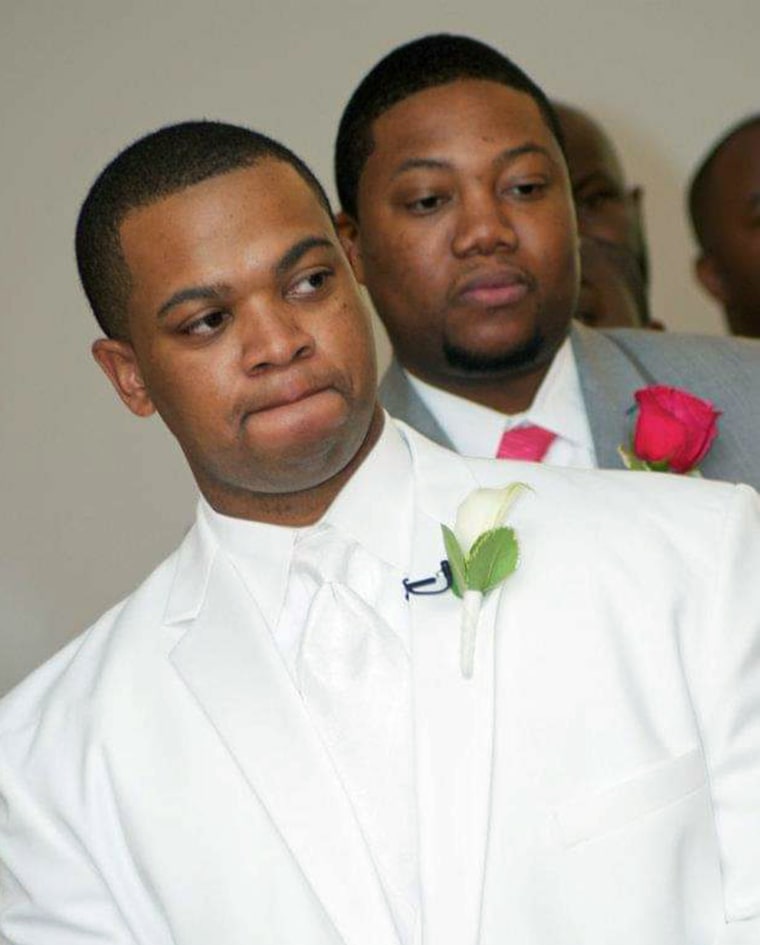
Plus Thomas’ doctor had assured him that he was probably healthy. Then in August 2020, Ladson died. As Thomas grappled with grief, he visited his doctor for his physical and his blood test came back showing he was slightly anemic. His doctor re-tested his blood and it again showed he was anemic. His doctor recommended a home test, which showed that he had microscopic traces of blood in his stool. He scheduled a colonoscopy.
“The specialist that I met with pretty much told me, ‘Look these are the numbers that your doctor sent over here. Just about any of these would have been considered normal numbers,’” Thomas recalled. “He said, ‘When we go in here, I don’t anticipate finding anything.’”
When Thomas woke, the doctor said they found a polyp, which they sent samples to be tested, a routine practice.
“I could hear in his voice that this probably wasn’t what he was expecting,” Thomas said. “The polyp was cancerous and based off what they knew or what they thought it was a pretty aggressive cancer.”
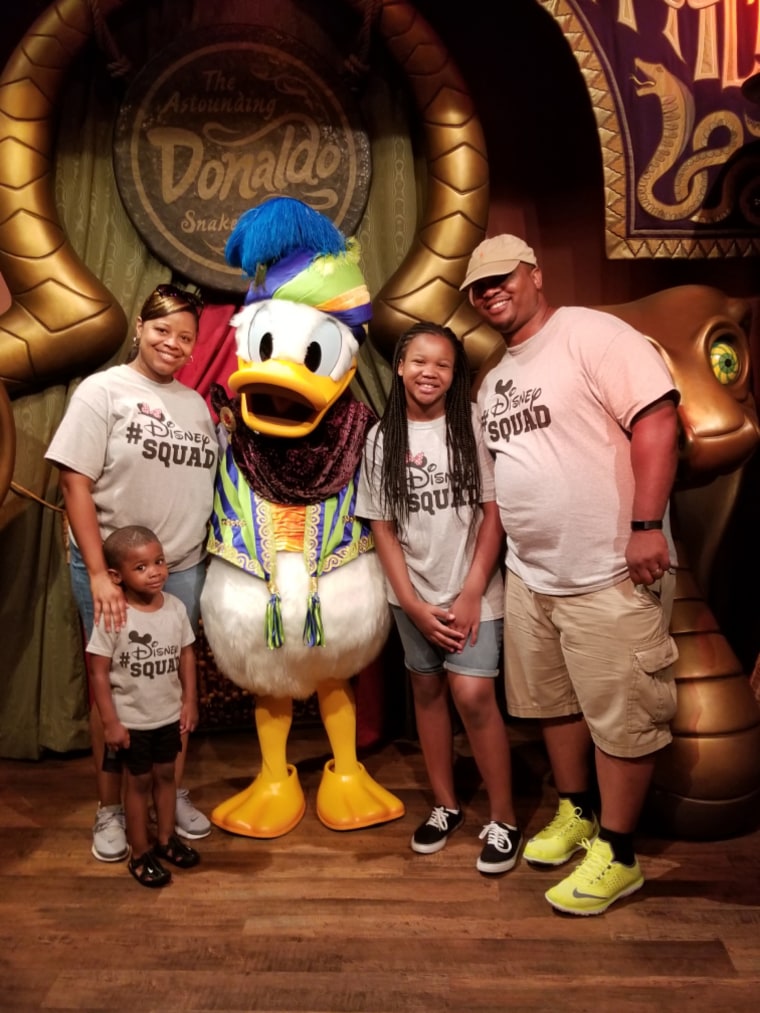
Thomas and his wife started researching treatments and he decided to go to the University of Texas MD Anderson Center for treatment. Facing surgery so soon after Ladson’s death felt overwhelming.
“It was very very scary,” he said. “You don’t really want to talk about it with family members because everyone is still grieving.”
He met with Dr. Nancy You, a colorectal cancer surgeon at MD Anderson Cancer Center, for a treatment plan.
“With colon cancer, early detection is key. By the time you start having symptoms, it’s pretty late,” Thomas said. “I got lucky because I was aware and somewhat diligent in following up with it — only because of what we’ve experienced with my cousin.”
Colon cancer in young patients
Colon cancer is increasing in young patients, yet doctors remain unsure why.
“That’s the million dollar question,” You told TODAY. “Unfortunately there’s not a short answer.”
Some younger people diagnosed with colon cancer before age 50 have a family history or a genetic syndrome that makes them more likely to develop it. But there’s still another group that has unexplained cancer.
“The rest are just bad luck,” You said. “The majority, 75%, are still unknown. So there’s a lot of research on the unknown population.”
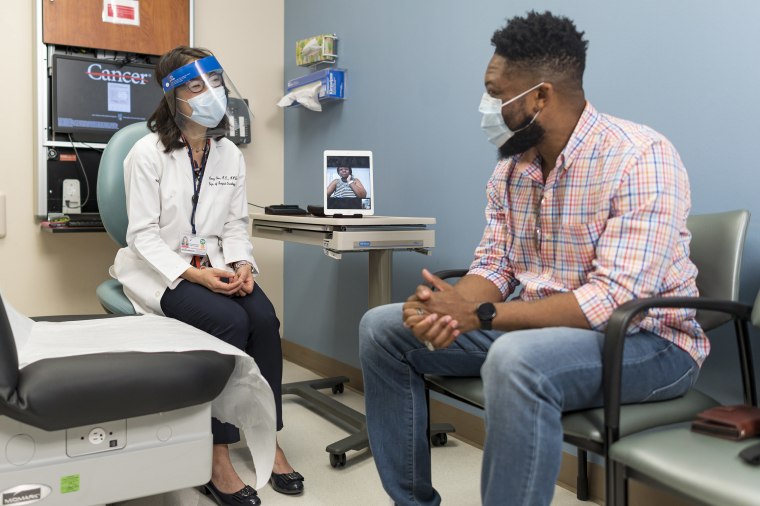
You said smaller studies have identified different possible causes for the uptick in younger people with colon cancer. Being too sedentary, taking too many antibiotics in childhood and having obesity have all been linked to increased cases in younger people. But still, there’s no definitive answer.
“All of these things pop up in the media every so often but at the end of the day can we really point our finger to one thing,” You said. “Not yet.”
Young people often receive a later colon cancer diagnosis because the symptoms are what doctors call “non-specific.”
“The symptoms are not specific in the sense that there’s many causes for rectal bleeding and there’s many causes for abdominal cramping,” You said. “When it happens in a younger person I think people are more likely to make the assumption that it’s not cancer related — and that may be true.”
Symptoms include:
- Rectal bleeding
- Anemia
- Stomach cramping
- Change in bowel habits
- Bloating
- Fatigue
Understanding when to visit a doctor with such symptoms can be difficult. That’s why You urges people to seek help if they experience any of symptoms for two weeks. It might not be colon cancer, but their doctors should be aware.
“Two or three weeks that already should be alarming enough,” she said. “If they move onto like a month, that’s chronic.”
Sharing to raise awareness
Losing Ladson to cancer at such a young age made Thomas feel more comfortable talking about colon cancer and its symptoms.
“My cousin experienced all of these symptoms, with gas and stomach pains,” Thomas said. “He was so young. I was so young at the time that I think you have to just be transparent, be assertive about talking about it because that’s what’s going to allow people to understand the significance of it.”
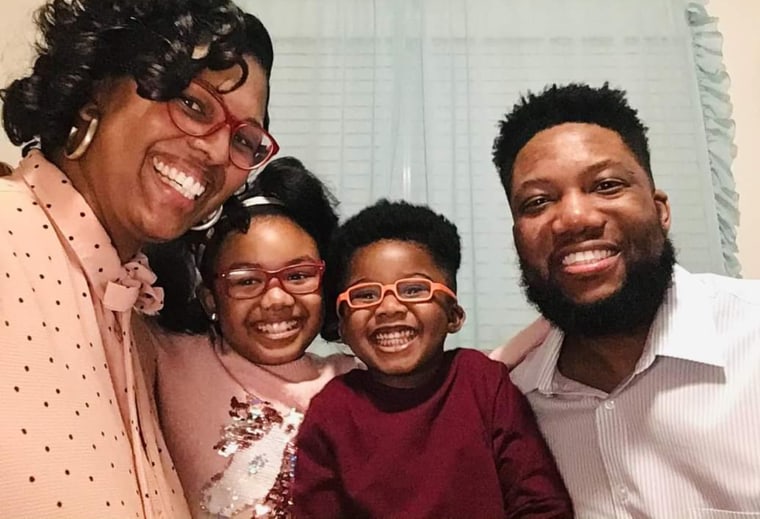
Thomas is cancer free and will continue with follow-ups to make sure he stays healthy. Without Landon’s experience with cancer, Thomas doesn’t know if he would have been as knowledgeable about the symptoms. But he knows that speaking up for himself changed his outcome and hopes others feel empowered to talk to their doctors if they have symptoms.
“You have to advocate for yourself,” he said. “You have to be diligent and following up.”
